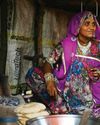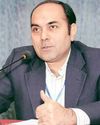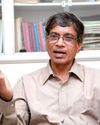
In 2012, families whose loved ones were killed by security forces in Manipur decided to fight the injustice and formed the Extra-Judicial Execution Victim Families Association. They moved the supreme court against Assam Rifles, the army and Manipur police over alleged encounter killings of 1,528 people from 1979 to 2012. Their resentment was not only against the centre and state police machinery but also against the National Human Rights Commission (NHRC), which was supposed to investigate cases of human rights violation.
The petition raises a pertinent question about the mandate of the NHRC, and describes it as a “toothless tiger”.
In its defence, the NHRC, which is an autonomous body set up under the Protection of Human Rights Act, 1993, to investigate human rights abuses, told the court it has no powers to act against persons or authorities who do not follow the guidelines laid down by it. Nor does it have the power to give directions or pass orders: it can only make recommendations. This is the trouble with all commisions – the power to speak without the power to take corrective, or, if necessary, punitive action.
The verdict in the Manipur case is pending. The commission, however, expects that once the judgment is pronounced, it will add more clarity to its mandate, powers, and functions. speaking on its 23rd Foundation day on October 21 last year, NHRC chairman HL Dattu, a former chief justice of India, hoped the judgment would make the commission “roar like a tiger”.
The impact
Over the years, there have been cases of human rights abuse across the country, particularly in Jammu and Kashmir, Chhattisgarh, Jharkhand and the northeast region. so, has the commission made a significant impact on the state of human rights in the country?
この記事は GovernanceNow の January 16, 2017 版に掲載されています。
7 日間の Magzter GOLD 無料トライアルを開始して、何千もの厳選されたプレミアム ストーリー、9,000 以上の雑誌や新聞にアクセスしてください。
すでに購読者です ? サインイン
この記事は GovernanceNow の January 16, 2017 版に掲載されています。
7 日間の Magzter GOLD 無料トライアルを開始して、何千もの厳選されたプレミアム ストーリー、9,000 以上の雑誌や新聞にアクセスしてください。
すでに購読者です? サインイン

the trump phenomenon
how the 2016 election exposed the us underbelly.

chinnamma is not amma
sasikala may have become the leader of the aiadmk, but she is a far cry from j jayalalithaa, who towered over tamil nadu politics like a colossus.

sakshi malik
sakshi malik is the first indian female wrestler to bag an olympic medal. the 24-year-old comes from mokhra village of rohtak, haryana. she came into the limelight as an international wrestler after she won bronze in the junior world championship in 2010. then, she went on to win silver in the commonwealth games in 2014 and a bronze at the asian wrestling championships in 2015. after rio olympics, malik was conferred india’s highest sporting honour – the rajiv gandhi khel ratna. she is also the brand ambassador of the beti bachao, beti padhao campaign in haryana.

Across The Threshold
A social media campaign aims to bridge gaps between communities by urging people to visit ‘people unlike us’

'How Can An Insurance Firm Promote Death?'
Dr Pankaj Chaturvedi, head and neck cancer surgeon at the Tata Memorial hospital in Mumbai, is a leading antitobacco activist. He joined hands with Sumitra Hooda Pednekar and others to file a PIL in the Bombay high court earlier this year, questioning the staterun insurance firm LIC’s investments in a leading cigarette-maker company. Edited excerpts from an interview with Geetanjali Minhas:

The Wolf And The Lamb
Social injustice and the fate of the university

"Young Dalit Leaders Have Age, Situation On Their Side"
How do you see the rise of the Bhim Army in Uttar Pradesh?During the last assembly elections in UP, it was a common consensus among many [dalit leaders] that we’d give one more chance to Mayawati.

Timely Delivery
A veteran bureaucrat explains how to complete government projects without time and cost overruns.

Cauvery Water Dispute
India’s leading water expert and president of the South Asia Consortium for Inter disciplinary Water Resources Studies, S Janakarajan, wonders why Chennai, a city that receives 1,250 mm rainfall, is called a thirsty city and goes on to explain to Shivani Chaturvedi what went wrong among the southern states that led to a water-war like situation. But, he warns that such a scenario will keep occurring if the government does not come up with a lasting solution.

Case Against Cash
Can you imagine a day without cash?